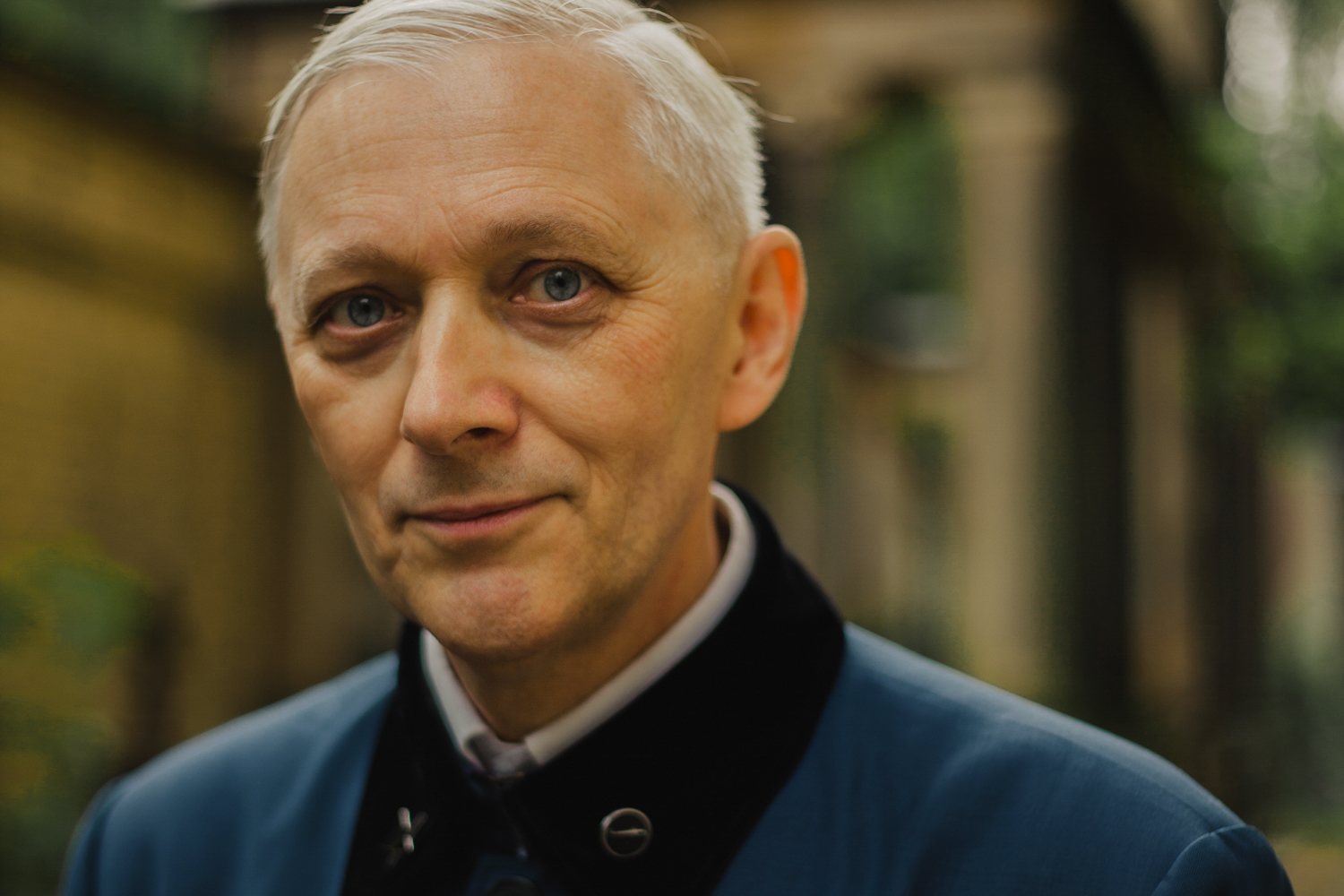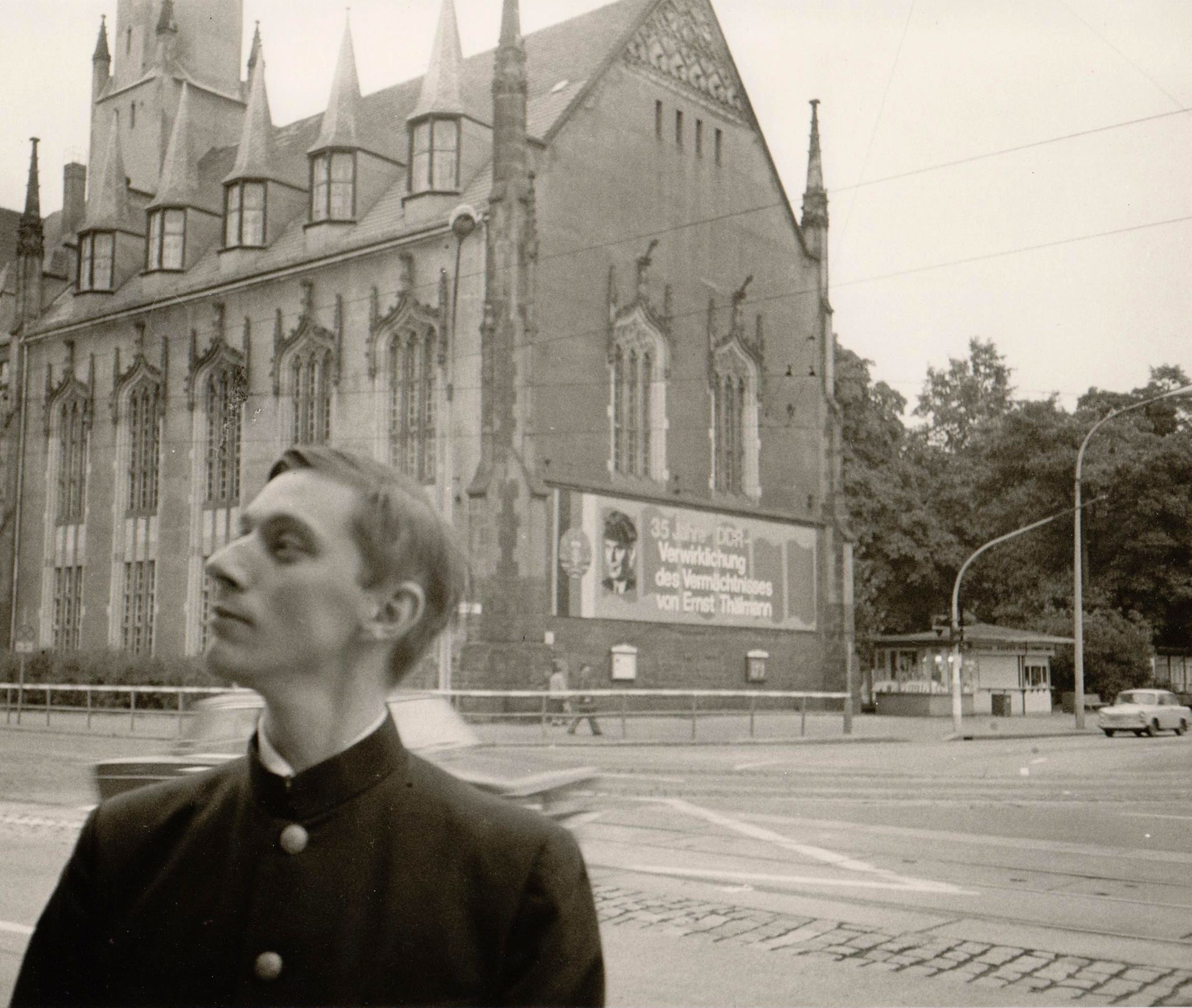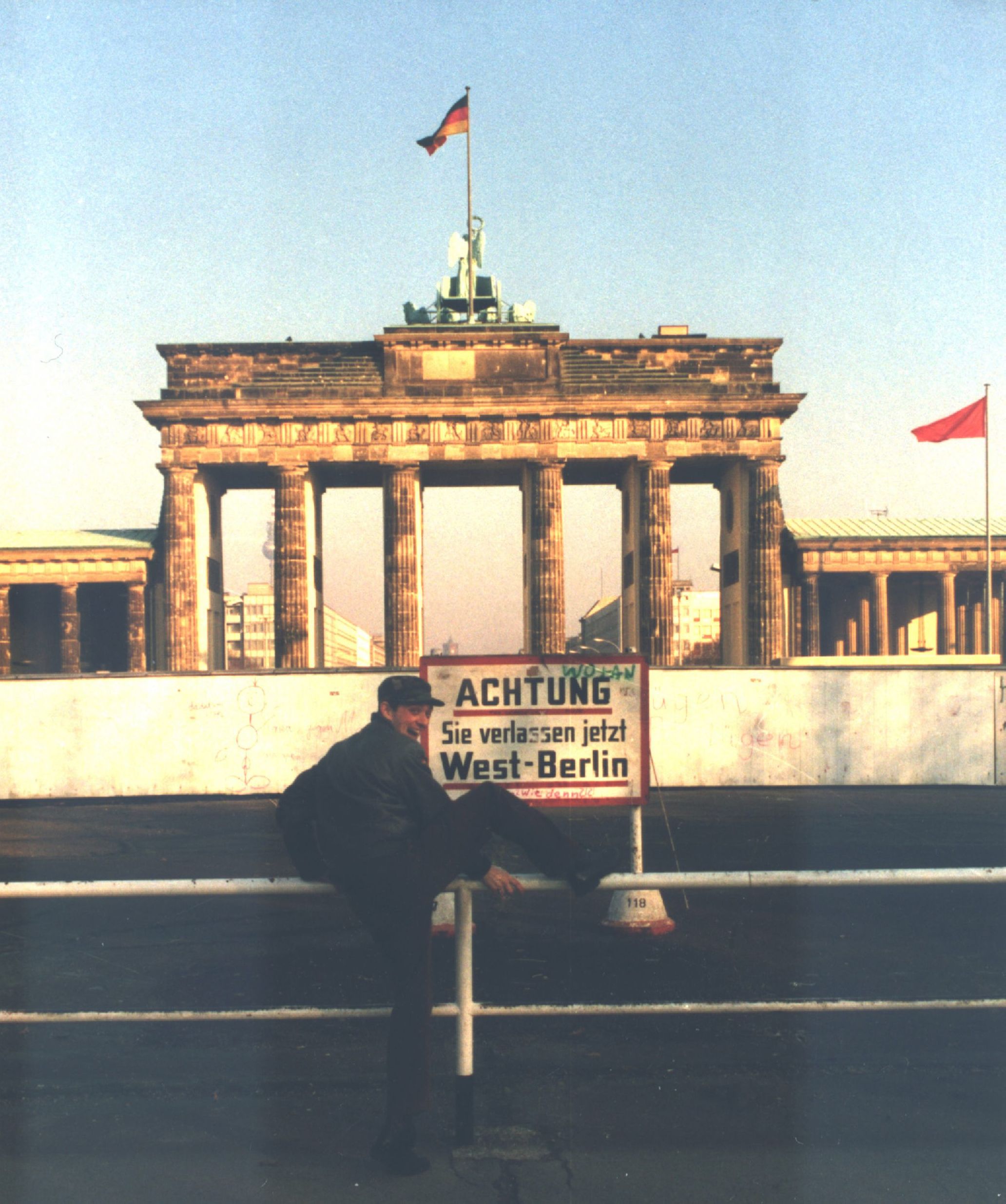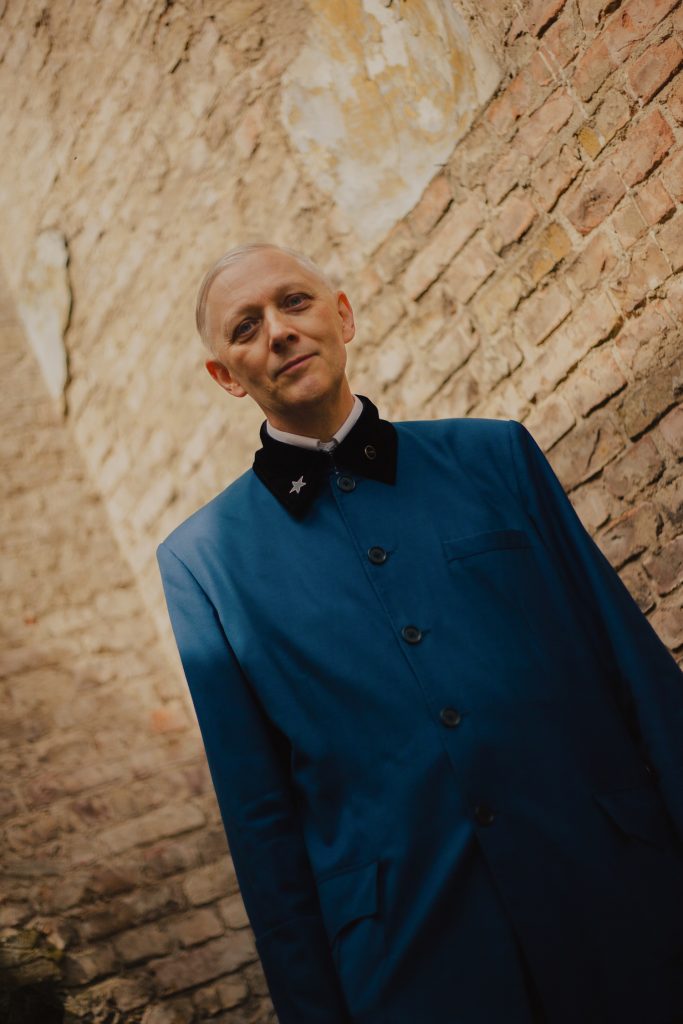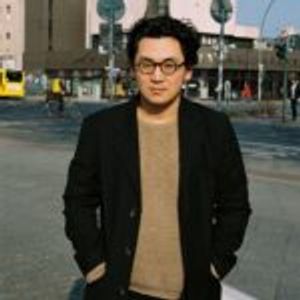Originally from England, Mark Reeder moved to Berlin in 1978. In 1989, the Berlin Wall fell, an event said to have been influenced by the rise of the punk scene. Around that same period, in the 1980s, the techno scene emerged out of Detroit. After the reunification of Germany, hippie and techno culture fused together, and Reeder was witness to the Love Parade, one of the world’s biggest and most legendary raves to this day. As a producer, he was present for the production of New Order’s “Blue Monday” and sent Japanese techno musicians such as Takkyu Ishino to Berlin. In addition to being a producer, he is also a remixer.
In short, he simultaneously witnessed the transition of an era and influenced the evolution of music culture. In this sense, the common thread of his career is summarized by the title mentioned at the beginning of the article: music smuggler.
It’s been three years since the release of his autobiographical documentary film, “B-Movie: Lust & Sound in West Berlin 1979-1989”. This film captured exchanges and interviews with people from the underground scene, as well as the famous artists such as Nick Cave who were seduced by West Berlin.
Today, Reeder is still living in Berlin, both witnessing and trying to start the next movement. This is the first part of an extended interview with him, which took place in a Kreuzberg café of his choice. In this interview, you will find fascinating stories that have never been told before. To accompany Reeder’s movie, we start the interview by asking him about his experiences before the fall of the Berlin Wall.
What East Germany looked like before the fall of the Berlin Wall
――It left quite an impression on me to see you smuggling cassettes, records, and other music culture into East Berlin in your film, “B-Movie”. Before the fall of the Berlin wall, did you ever feel like this was dangerous?
Mark Reeder: To be honest, I think it’s more dangerous today (laughs). Back then, it wasn’t dangerous in a life-threatening way, but maybe in a political way. At the time, Berlin was cut off from the rest of the world and felt like it was in the middle of the communist bloc. But it wasn’t like you’d go out in the street and get mugged or stabbed. The junkies in Christiane F(A cult film set in Berlin about a teen who becomes addicted to drugs) only hung around Bahnhof Zoo. It wasn’t like today, when you travel on U-Bahn going from Hermannplatz to Alexanderplatz, and every five minutes, some kind of junkie is coming in and begging for money.
――It must have taken a lot of courage to leave England, an iconic birthplace of music, to live in Berlin amid political repression.
Mark: I lived in England, but I discovered Krautrock at the record store I worked at as a teenager. Pop was at its peak in England, and I grew up listening to the Beatles. The songs were three minutes long. And then I heard this music from Germany—and it’s 20 minutes, nothing changes all the way through, and there’s no hook. It was like a piece of classical music.
I played violin as a kid, so I was into classical music. So for me, it was very easy to make the connection from this kind of popular music, like the Beatles era and Jimi Hendrix, to Krautrock.
――What kind of music were you listening to?
Mark: Things like Can and Krautrock. And Tangerine Dream. Also, Ash Ra Tempel. I discovered all these unique artists and it broadened my horizons. So I wanted to see what was happening in Berlin.
――What did you think when you actually went to Berlin?
Mark: At first, I came to Berlin just thinking I’d buy a bunch of records (laughs) I thought I’d just go for the day to buy some records and see a bit of the city. But when I went, and Berlin was completely blackened and gray. It was a total shock. I knew that Berlin had been a battleground during World War II, but I had no idea what it might look like, you know. And then you see all these buildings and realize, okay, people were shooting down the windows. The biggest eye-opener for me was going to the East part of the city.
――So you were able to cross over the wall successfully.
Mark: Until I went to Berlin, I didn’t know anything about the music in the East. East Germany was a communist state, and its capital, East Berlin, was also under surveillance by the government. In the East, there were people on television singing about flowers and happy families and socialism.
――It’s sort of like the world you see in the film, Good Bye, Lenin!.
Mark: That’s true. Although I feel like there are definitely other examples. (laughs) When I actually went to East Germany, I found that the people there were secretly listening to West radio. I thought, That must mean there are homegrown East German artists! And there must be some kind of East German alternative music scene!
I thought, What about the kids that play in churches, cellars, or garages? You know, something away from the prying eyes of the government. I thought if I went there, there would be some sort of culture. And then I actually saw this kid on a train in East Berlin with sort of punkish hair and clothing. He got off the train, and I ran after him. I tapped him on the shoulder and said, “Hey, what kind of music do you like?”
Adventures straight out of a movie: Meeting a punk on a train in East Germany and smuggling music
――I think that story is a good example of your acuity. (laughs)
Mark: Well, I wasn’t a fan of the rock concerts that the East German state was allowing. I asked this kid, “Do you know any kind of punk gigs here?” And he was looking at me funny. (laughs) So then he immediately goes, “Punk is forbidden.” So I said, “Surely there must be some kind of underground scene.” And he was like “No, no, there’s no underground scene.”
I was disappointed, but I figured I wouldn’t get any definite information right then and there. So I wrote my address on a piece of paper and handed it to him. I said, “Well, look, if you hear anything, just write me a postcard.” But I heard nothing for like six or seven months.
――Things don’t always go as smoothly as they do in the movies.
Mark: But wait! Then, I get this letter from this girl saying, “I’d like to meet you.” She wanted to meet at a cocktail bar in the Palast der Republik, which was the East German Parliament building.
――Whoah! What a turn of events.
Mark: She gave me a few alternative dates when I could go. It was kind of like a James Bond movie. (laughs) And so obviously, I went. And she said she was involved in the East German punk scene. Because punk was illegal there, she was very cautious and was just asking me all these things. You know, “Who are you? What do you want?” Really just sounding me out to see who I was.
――That would be nerve-wracking. It sounds like an internal investigation by the secret police (Stasi).
Mark: Exactly.
――What!?
Mark: I asked her, “Where did you get my address?” She said this punk guy gave it to her. After the reunification of Germany in 1989, I got to see my Stasi file. It was only then that I found out the kid I approached on the street was working for the Stasi.
――I can’t believe that kind of thing actually happens!
Mark: It was crazy. The minute he got my address, he went and reported it straight to the Stasi. He was like, “I just met this English guy. He’s looking for the underground.” I found out later that the “underground” in East Germany didn’t mean the underground music scene. It meant underground political organizations. And so I guess all these alarm bells were going off for the government, like, “What’s this English guy looking for?” And so through him, the East German state was watching me. They thought I was working for MI5 or CIA or something. (laughs)
――So this stuff that sounds straight out of a movie was actually happening.
Mark: It’s funny to think that these guys at the Statis headquarters were staying up late to look into me. They had no idea that I was only looking for music. They thought I was going to overthrow their government.
――In any case, wasn’t it scary to cross over the Berlin Wall into East Germany back then?
Mark: I didn’t let the Berlin Wall affect my agenda, which was to make my friends in East Berlin happy. I could see that they loved the kind of music that I loved, but they couldn’t own it as a record in East Germany. They’d go on holiday to Hungary because it was a little bit more relaxed than Czechoslovakia or East Germany, and they’d buy a Joy Division record there. I saw that and thought, I’ve got all these records, so I can just put them on a cassette and smuggle the cassettes into East Germany. I knew that if I gave the cassette to someone, they’d give it to someone else, and so on.
From his early days in Berlin, Mark was already using music, a culture that transcends borders, to move from city to city. In part two of this interview, Mark details his exchanges with the musicians he was involved with in Berlin. And as a witness to various eras, he also gives us his perspective on the world since the coronavirus.
Continue to Part 2
Mark Reeder
Born in Manchester, Mark Reeder moved to Berlin in 1978. In addition to forming his own new wave band and working as a musician, he was also the manager of the Berlin all-girl avant-garde group Malaria!. As the German Representative for Factory Records, he worked as a tour manager for bands such as New Order. In 1990, he founded the electronic dance music label MFS, and he was deeply involved in the dawn of the Berlin techno scene. In addition to supporting the careers of young artists like Paul van Dyk and Mijk Van Dijk, he was also involved in inviting Japanese artists like Denki Groove and Takkyu Ishino to Berlin. In 2008, he resumed making his own music, remixing Depeche Mode, Pet Shop Boys, and New Order, as well as composing music for films and commercials. The feature-length documentary, “B-Movie: Lust & Sound in West Berlin, which details his experience in West Berlin in the 80s, was released in 2015.
Instagram:@markreeder.mfs
Bandcamp:@Mark Reeder
Direction Kana Miyazawa
Photography Chihiro Lia Ottsu
Translation Aya Apton

